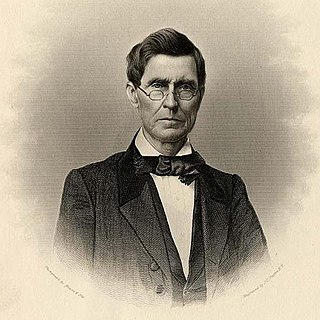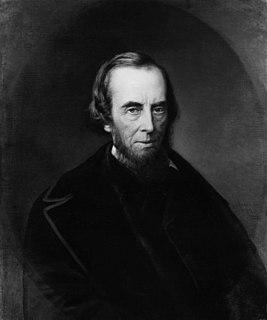A Quote by John Milton
These evils I deserve, and more . . . . Justly, yet despair not of his final pardon, Whose ear is ever open, and his eye Gracious to re-admit the suppliant.
Related Quotes
When he at least reached the door the handle had cease to vibrate. Lowering himself suddenly to his knees he placed his head and the vagaries of his left eye (which was for ever trying to dash up and down the vertical surface of the door), he was able by dint of concentration to observe, within three inches of his keyholed eye, an eye which was not his, being not only of a different colour to his own iron marble, but being, which is more convincing, on the other side of the door.
You cannot raise the standard against oppression, or leap into the breach to relieve injustice, and still keep an open mind to every disconcerting fact, or an open ear to the cold voice of doubt. I am satisfied that a scholar who tries to combine these parts sells his birthright for a mess of pottage; that, when the final count is made, it will be found that the impairment of his powers far outweighs any possible contribution to the causes he has espoused.
The life-giving preacher is a man of God, whose heart is ever athirst for God, whose soul is ever following hard after God, whose eye is single to God, and in whom by the power of God's Spirit the flesh and the world have been crucified, and his ministry is like the generous flood of a life-giving river.
Who stands firm? Only the one for whom the final standard is not his reason, his principles, his conscience, his freedom, his virtue, but who is ready to sacrifice all these, when in faith and sole allegiance to God he is called to obedient and responsible action: the responsible person, whose life will be nothing but an answer to God's question and call.
The ever increasing intensity of despair depends upon the degree of consciousness or is proportionate to this increase: the greater the degree of consciousness, the more intensive the despair. This is everywhere apparent, most clearly in despair at its maximum and minimum. The devil's despair is the most intensive despair, for the devil is sheer spirit and hence unqualified consciousness and transparency; there is no obscurity in the devil that could serve as a mitigating excuse. Therefore, his despair is the most absolute defiance. . . .
The average man votes below himself; he votes with half a mind or a hundredth part of one. A man ought to vote with the whole of himself, as he worships or gets married. A man ought to vote with his head and heart, his soul and stomach, his eye for faces and his ear for music; also (when sufficiently provoked) with his hands and feet. If he has ever seen a fine sunset, the crimson color of it should creep into his vote. The question is not so much whether only a minority of the electorate votes. The point is that only a minority of the voter votes.
Compared with the person who is conscious of his despair, the despairing individual who is ignorant of his despair is simply a negativity further away from the truth and deliverance. . . . Yet ignorance is so far from breaking the despair or changing despair to nondespairing that it can in fact be the most dangerous form of despair. . . . An individual is furthest from being conscious of himself as spirit when he is ignorant of being in despair. But precisely this-not to be conscious of oneself as spirit-is despair, which is spiritlessness. . . .
The whole gospel of Karl Marx can be summed up in a single sentence: Hate the man who is better off than you are. Never under any circumstances admit that his success may be due to his own efforts, to the productive contribution he has made to the whole community. Always attribute his success to the exploitation, the cheating, the more or less open robbery of others. Never under any circumstances admit that your own failure may be owing to your own weakness, or that the failure of anyone else may be due to his own defects - his laziness, incompetence, improvidence, or stupidity.
Emeth came walking forward into the open strip of grass between the bonfire and the Stable. His eyes were shining, his face was solemn, his hand was on his sword-hilt, and he carried his head high. Jill felt like crying when she looked at his face. And Jewel whispered in the King's ear, "By the Lion's Mane, I almost love this young warrior, Calormene though he be. He is worthy of a better god than Tash.






































